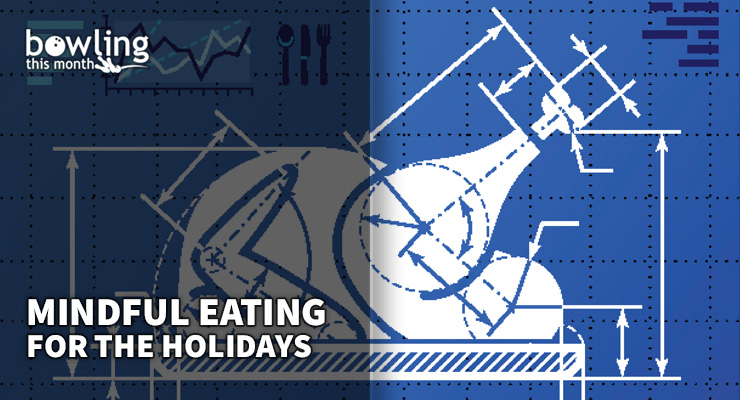Article Contents
- 1. Mindfulness
- 2. Proper portion sizes
- 2.1. Make a plan, keep track
- 2.2. Tips and tricks
- 2.3. Frequent, smaller portions
- 3. Low-calorie, nutritious foods
- 3.1. Tips to reduce calories
- 3.2. Tips to increase nutritional value
- 3.3. Tips to increase nutritional value and reduce caloric value
- 4. Conclusion
Note: This article is only available to Bowling This Month subscribers.
With the holidays right around the corner, it’s the time for a lot of us to enjoy some time off work and some really good food. Because of this, I have many clients and potential clients who have said that the holidays would be the worst time for them to start a “diet.” And for good reason. Maintaining your weight during the holidays can be a struggle; according to a study in the New England Journal of Medicine, the average person gains more than five pounds over the holiday season.
My challenge is for you to consider that starting your weight loss journey right before and/or during the holidays would actually be in your long-term best interest. Why?
If you can learn mindfulness, proper portion size, and low-calorie, nutritious food choices during the time when everyone else is over-indulging, you set yourself up for long-term success—not only in your life, but on the lanes as well. All of these practices contribute to your overall health, which undoubtedly translates into how well you feel while performing. In addition, the habits and discipline you have off the lanes will show themselves on the lanes, whether good or bad.
Mindfulness
The simplest way to practice mindfulness is to pay attention to how many bites of food you take, the number of times you chew the food, and all of the different tastes and textures you notice. This process aids in digestion, as you are mechanically digesting your food more effectively, which is especially beneficial if you frequently have symptoms of heartburn and indigestion. It also slows you down, which helps you feel satisfied with the meal before you realize you’ve eaten too much and have overstuffed yourself.
Listening to your body is another mindfulness practice. Hunger and satiety (fullness) signals are often ignored, which results in the over-consumption of calories, and thus, weight gain. When your body gives you the indication that it is full, put the fork down. Just because the food tastes incredible and you have served yourself too much doesn’t mean ...
Already a premium member? Click here to log in.


